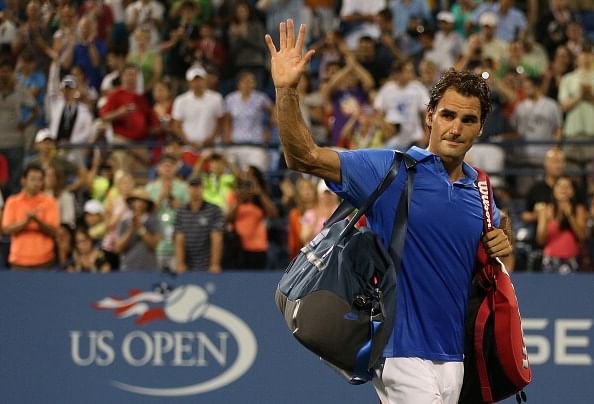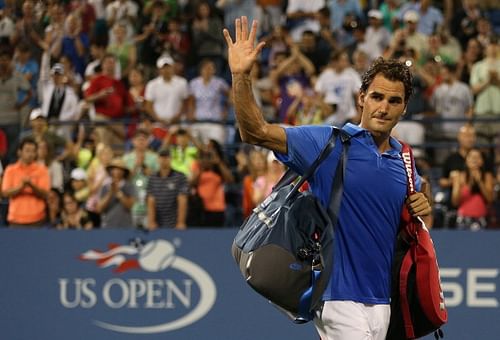
Roger Federer: The God of tennis has become mortal

Roger Federer: the final goodbye?
It has been 20 years since Jurassic Park came out. No. It’s been 14 years since The Matrix was released. Nah, still not feeling it. The Lord of the Rings: The Return of the King, the final instalment of the greatest film series ever created by the hand of man (and woman), will celebrate its 10-year anniversary in a couple of months. I feel slightly old, but I did watch it on the day I took my last class 10 board exam.
Roger Federer is mortal.
Good Lord, I’m growing old!
Nothing quite reminds you of your own mortality and the impending march to the grave like watching a childhood icon fade away into insignificance. As children, we are not sullied by the cynicism and mistrust that is such an integral part to an adult outlook towards the world. We still believe in values like honour, dignity, fair play, and sportsmanship. Children are willing to suspend disbelief sufficiently enough to think that certain individuals are the very embodiment of the things that we crave to be; we admire their genius, their tenacity, their spirit. We revel in their accomplishments as if they were of our own doing and firmly believe that these people are not mere human beings, but incarnations of celestial persona who have deemed us worthy to witness their feats of brilliance.
Heroes are the creation of boys and girls, not men and women. That is why our fathers will forever maintain that a Sunil Gavaskar or a Kapil Dev is far better than the Sachins and Dravids that we so fervently worship; just as their fathers before them maintained that Vijay Merchant and Mulvantrai ‘Vinoo’ Mankad were the best. To us, the heroes of our childhood were the best heroes. Whenever we see them play, we are transported back to an era when the world was still full of possibility and wonder, when things like EMI payments were dad’s problem, not ours. And that is why it hurts so much to watch them fail, as they inescapably will.
Between his first Grand Slam win at Wimbledon in 2003, to his last Slam title, again at the All England Club in 2012, Roger Federer made the semi-finals in 32 out of the 37 Grand Slams he was a part of. He made the final in 24, and won 17 of them. There was a five-year period from the 2005 season to the 2009 season, when Fedex delivered like, well, FedEx. He made the semi-final of each one of the 20 Grand Slam tournaments held in those years, made the final in 17 of them, and won 11. He was untouchable, he was Superman.
Like the son of Krypton, he too had his weakness. Clay was Federer’s kryptonite, and Rafael Nadal, who was responsible for five out of the six Grand Slam final defeats that Federer endured in those halcyon days, was his Lex Luthor. But he was still, by universal acclaim, the greatest tennis player in the world, maybe even of all time, and undoubtedly the most dominant athlete across all sport.